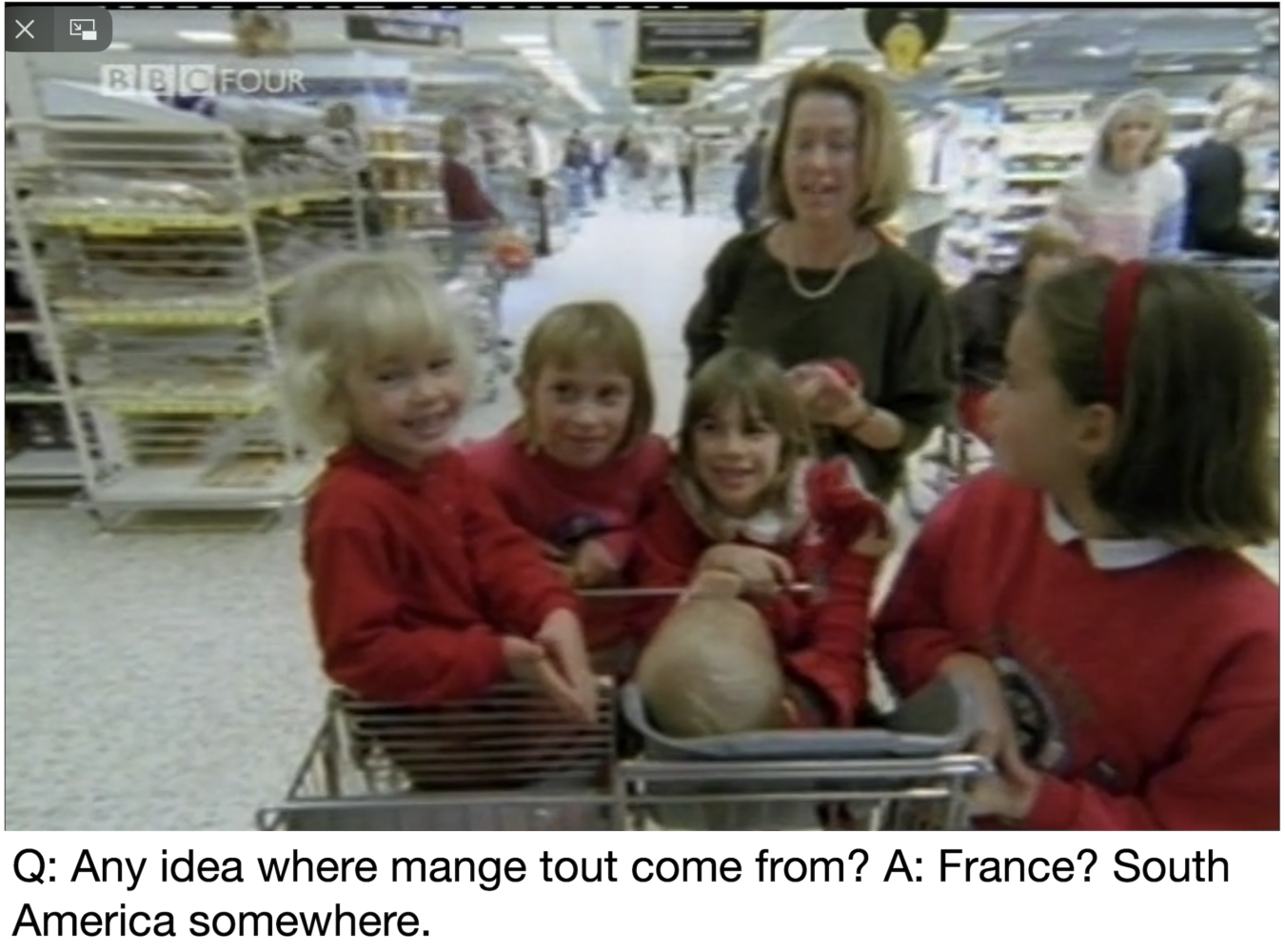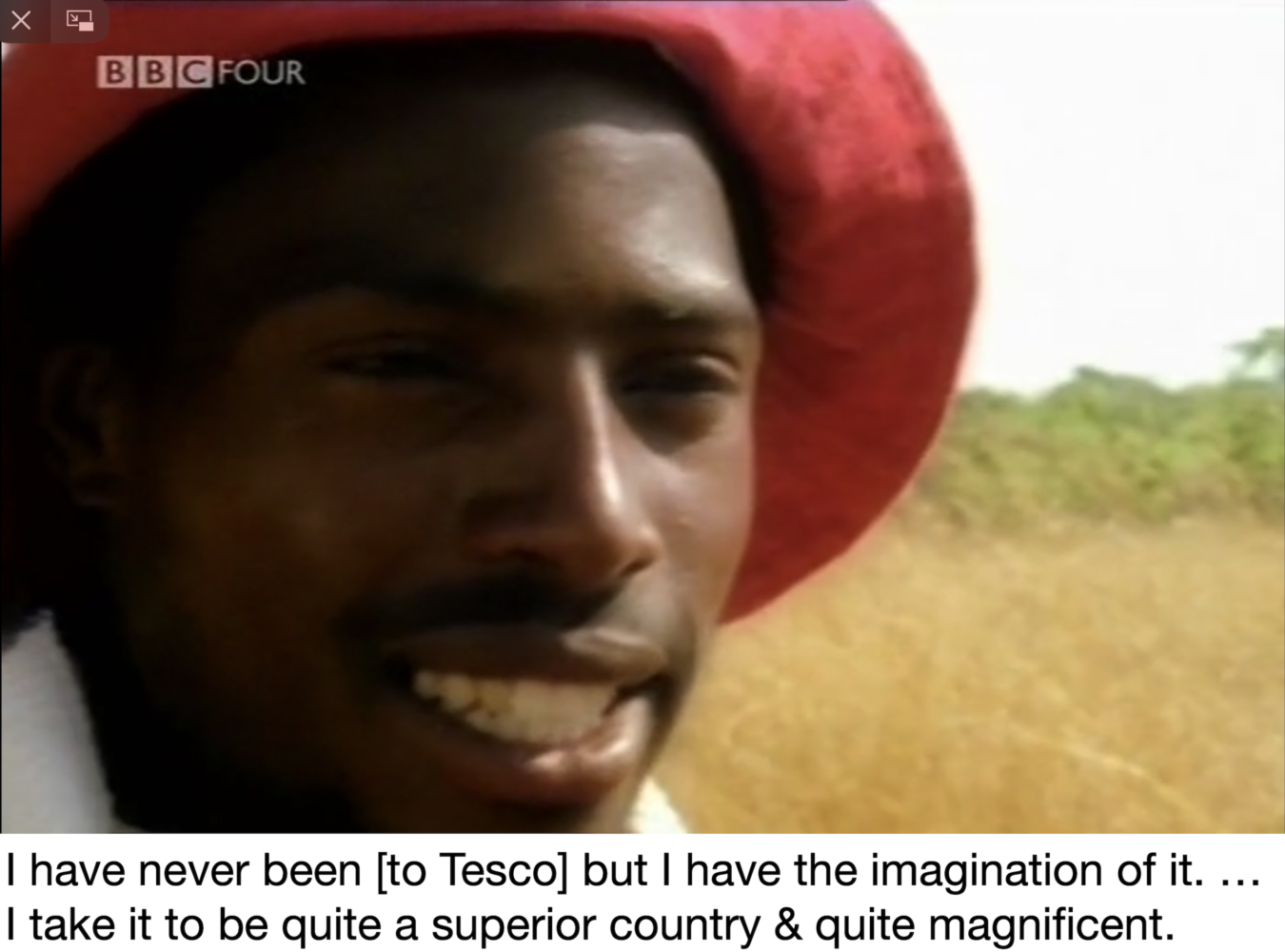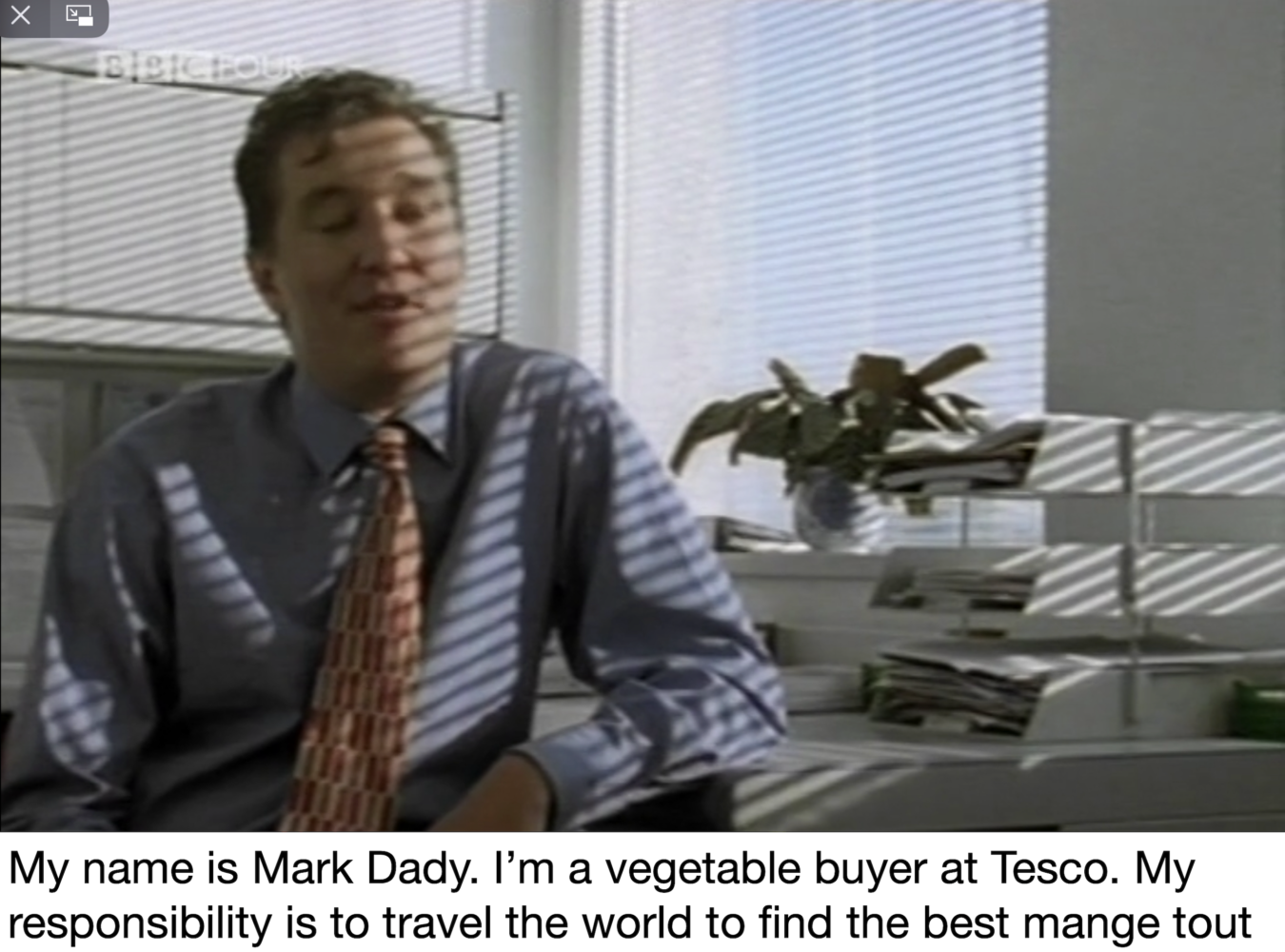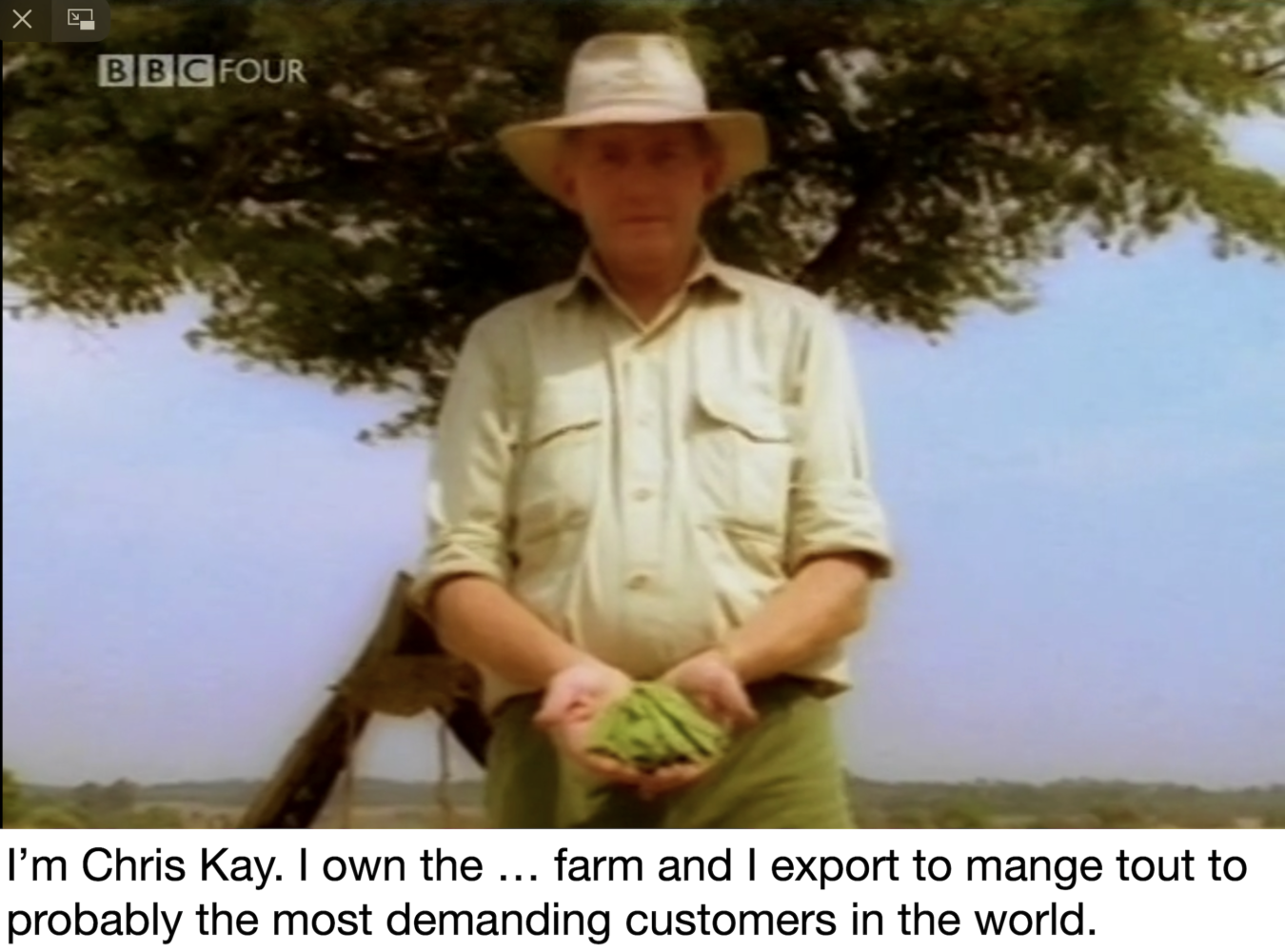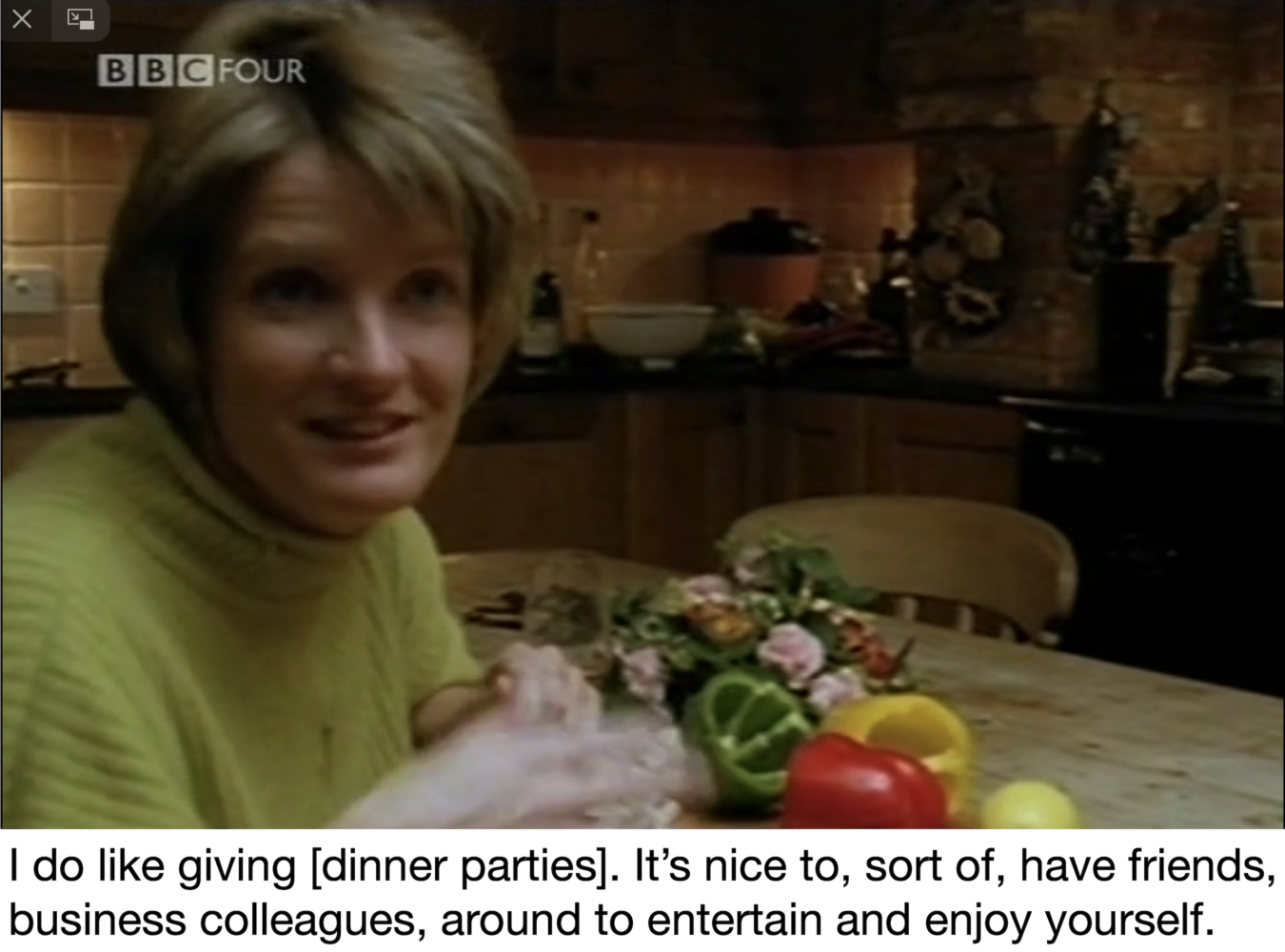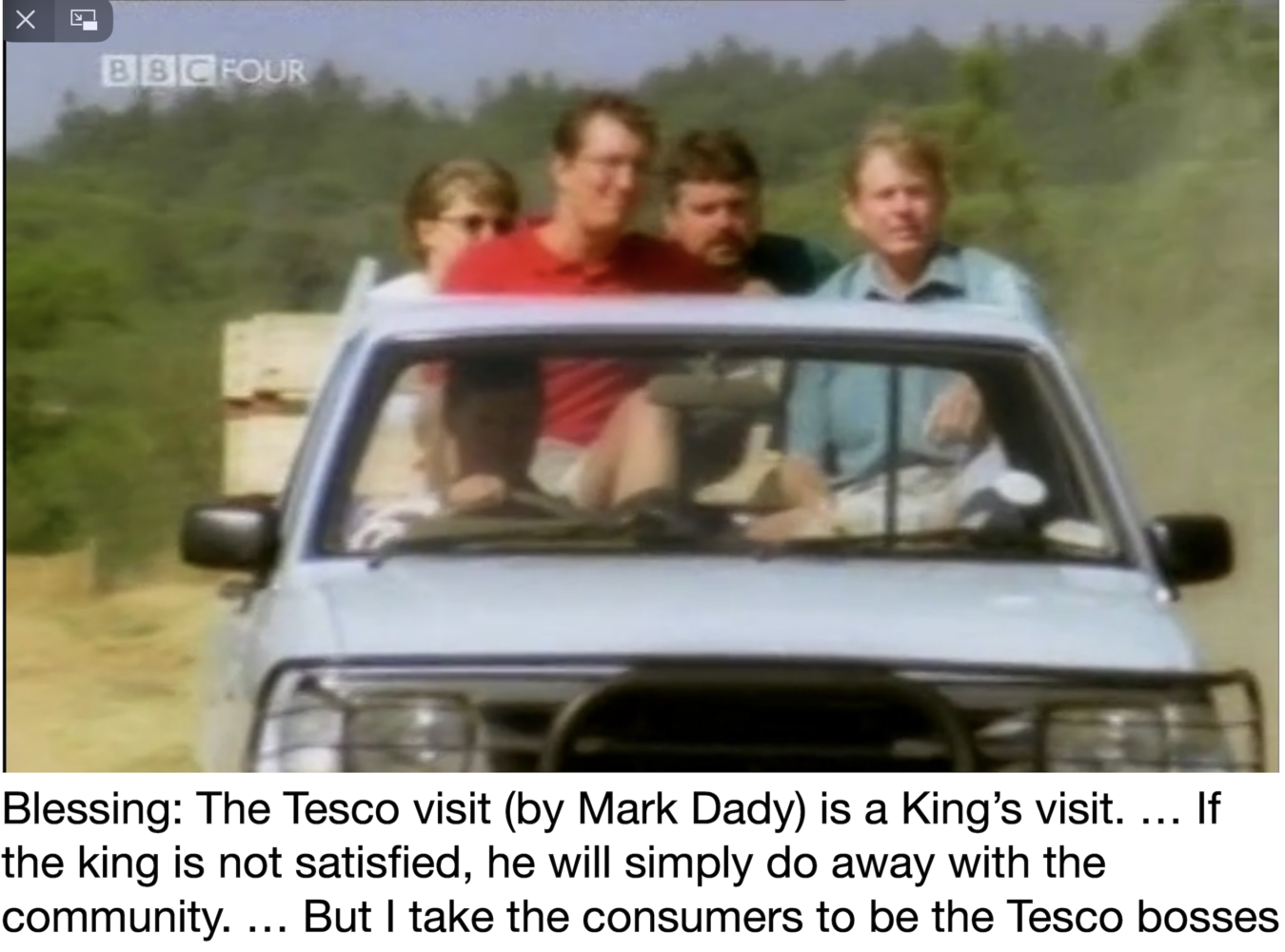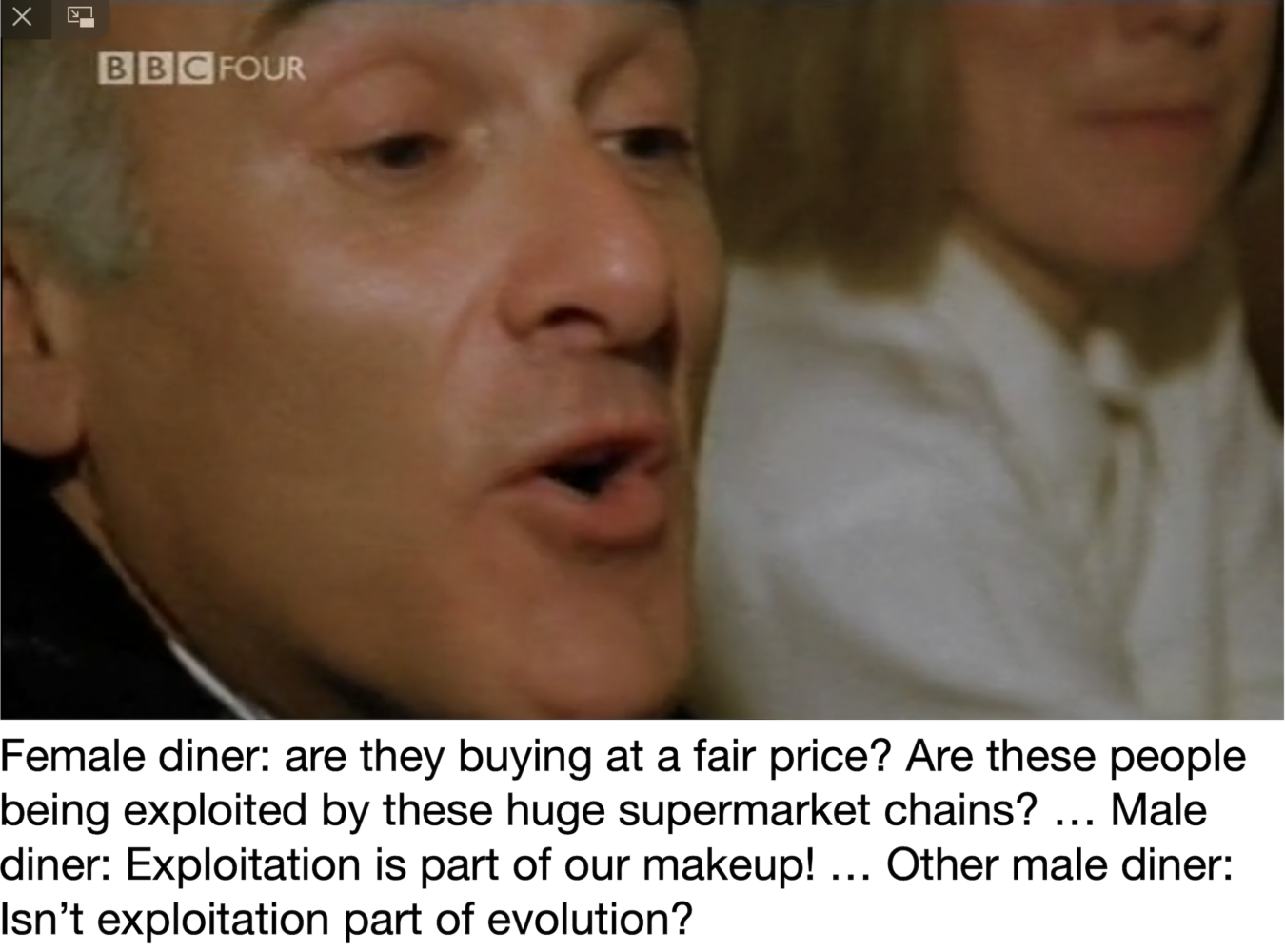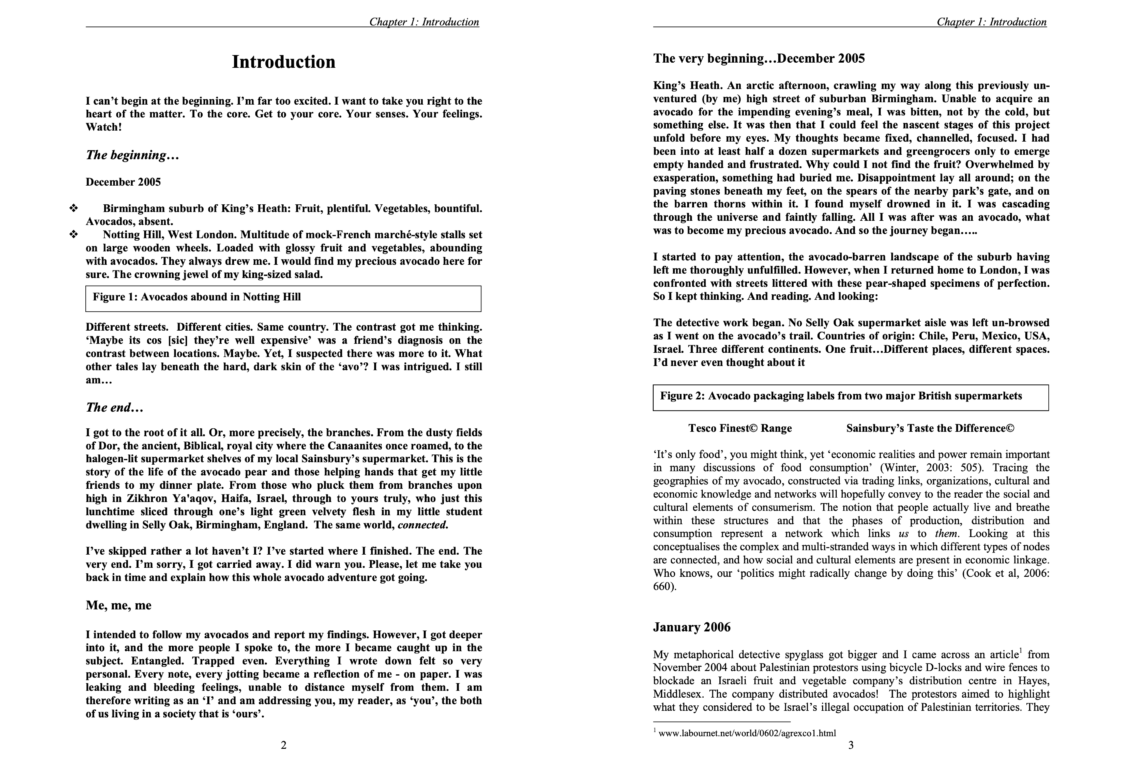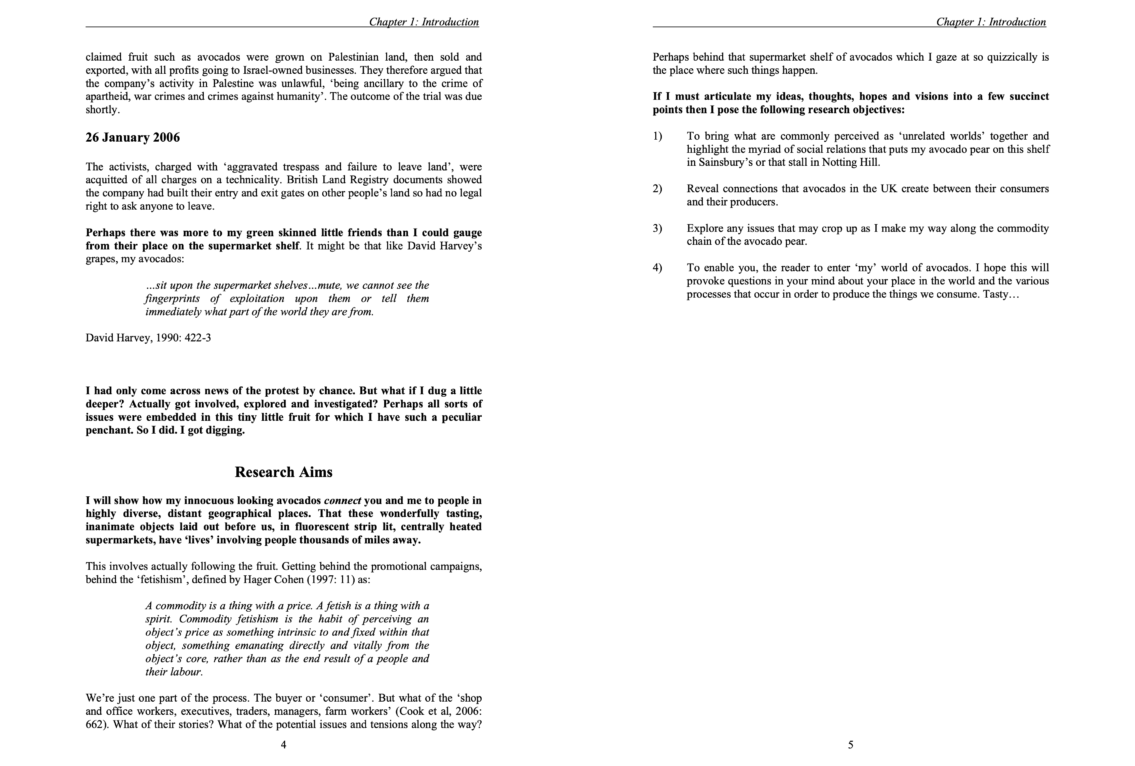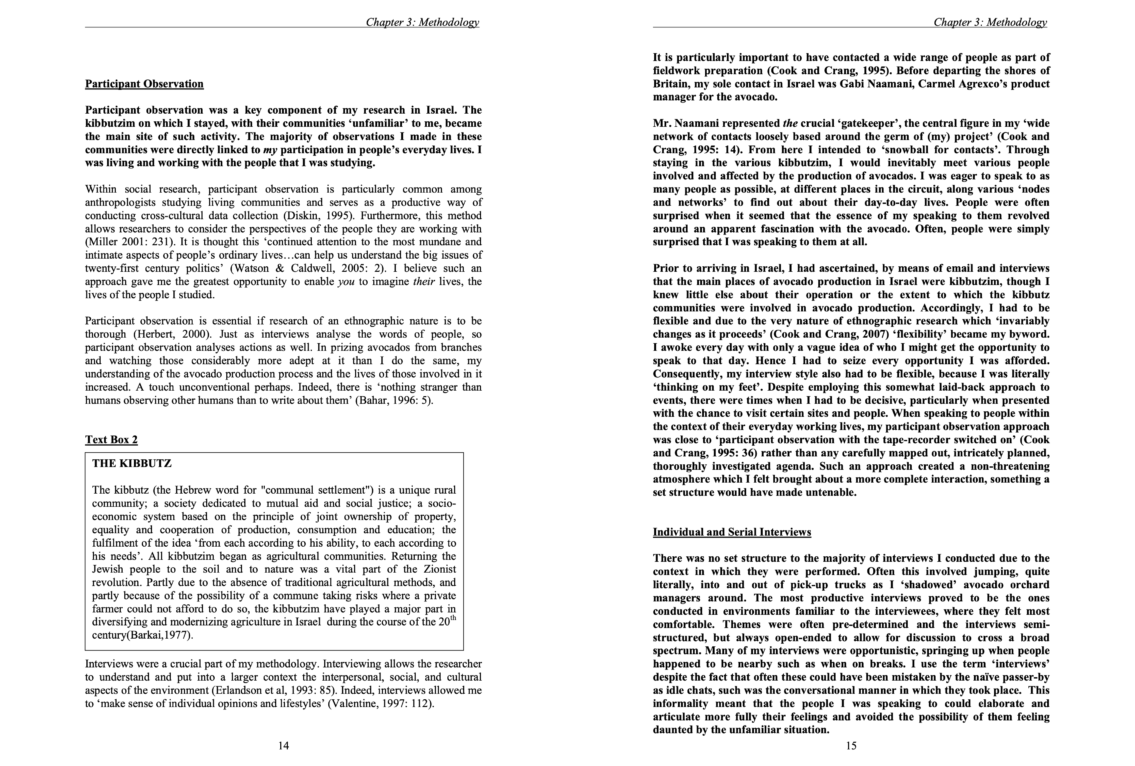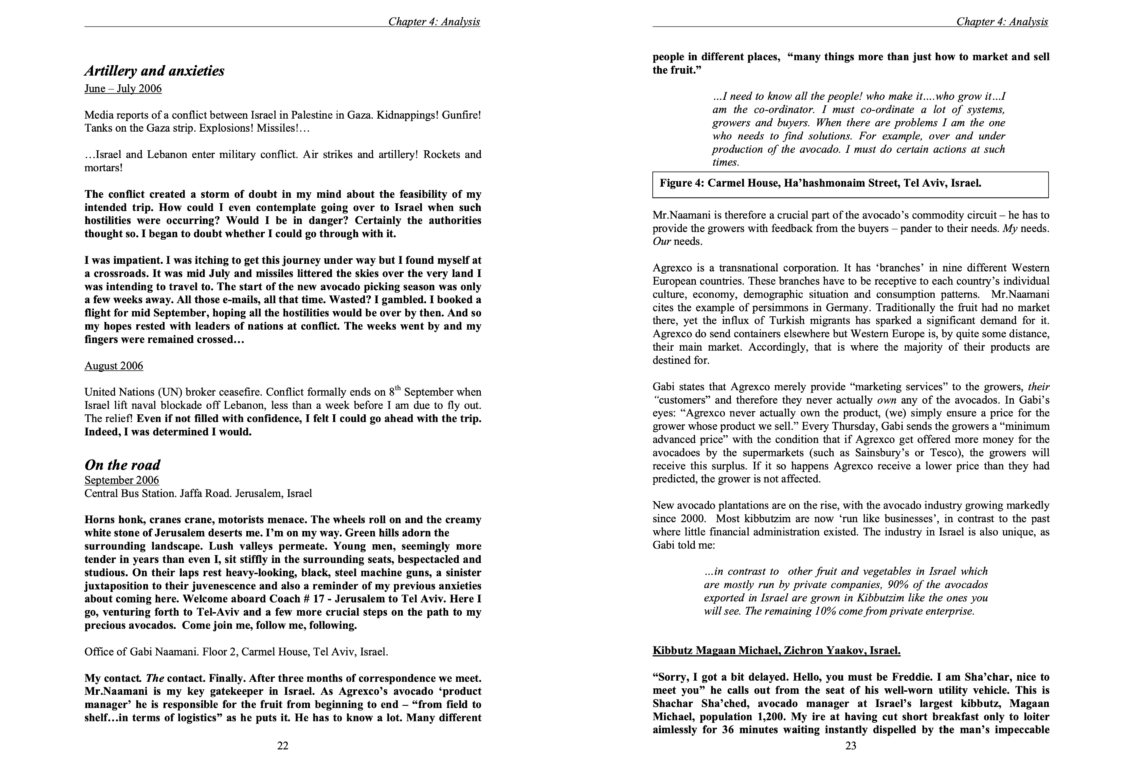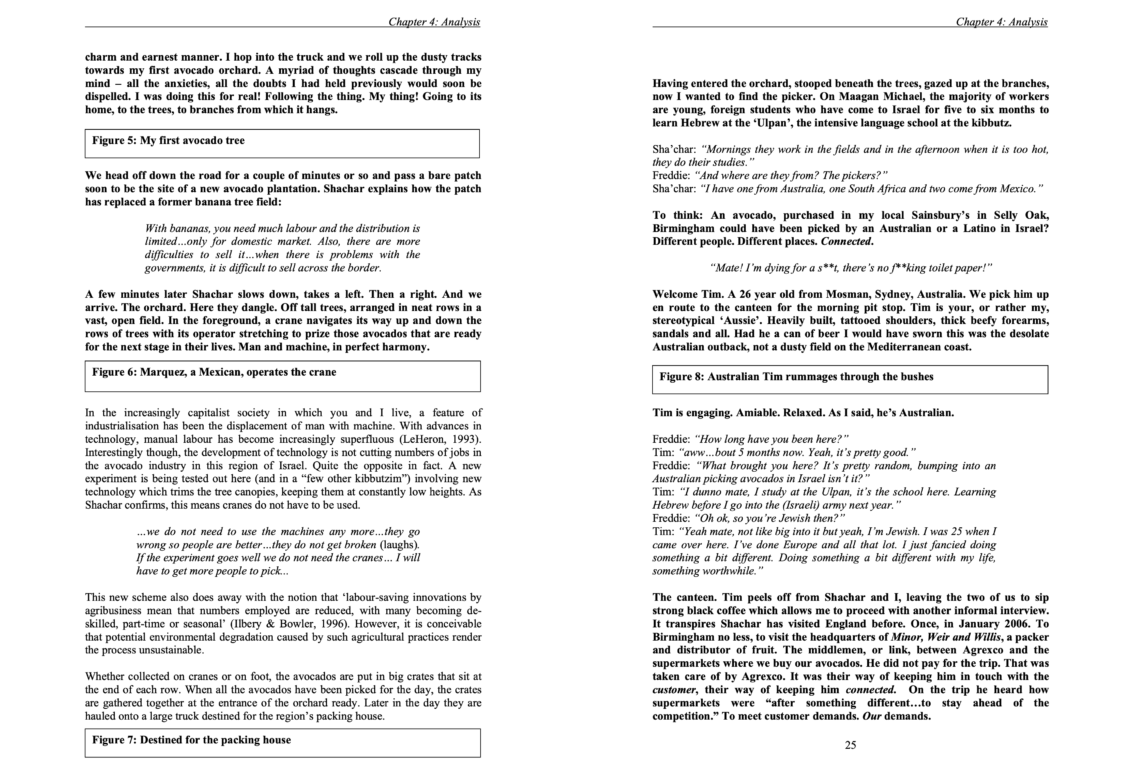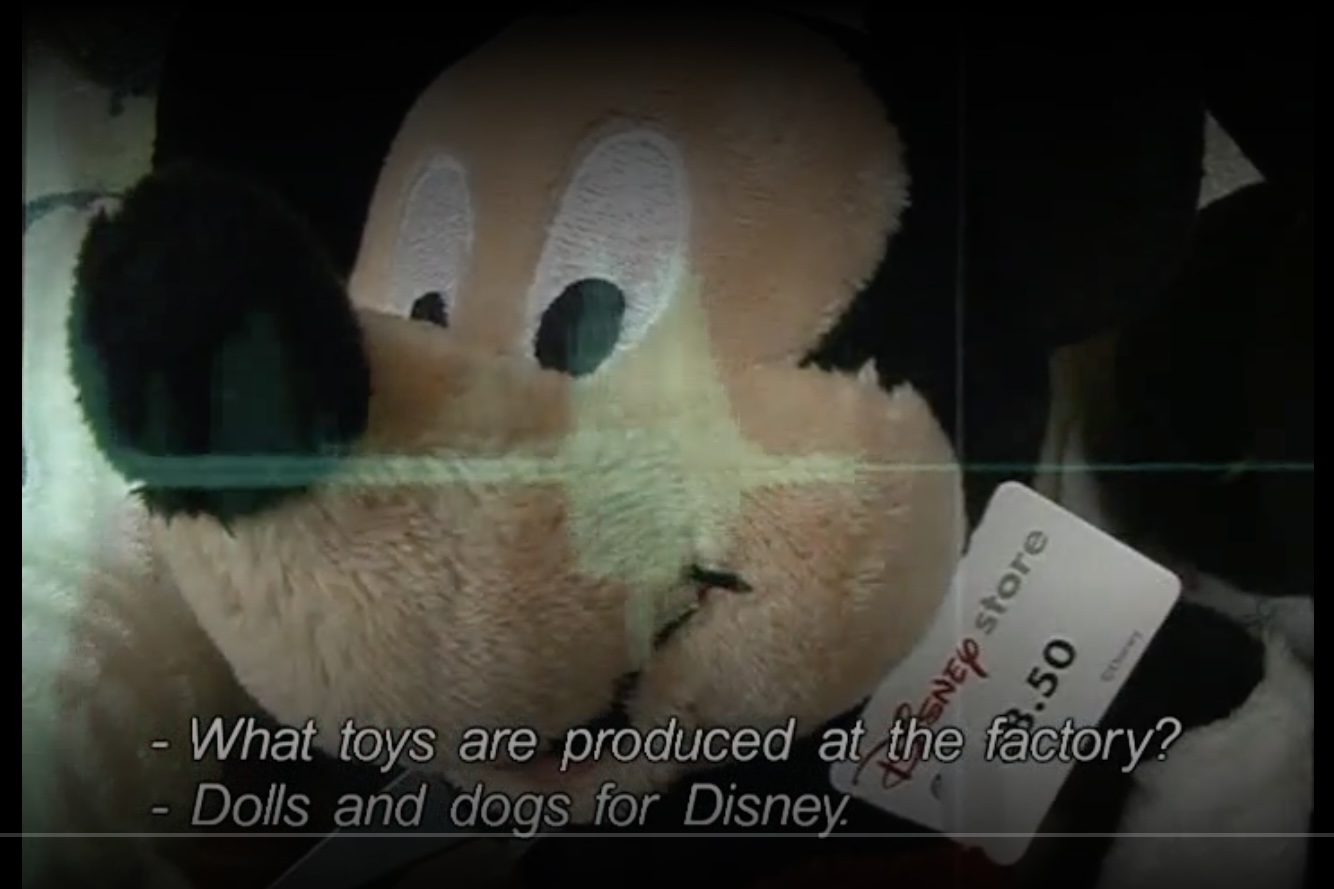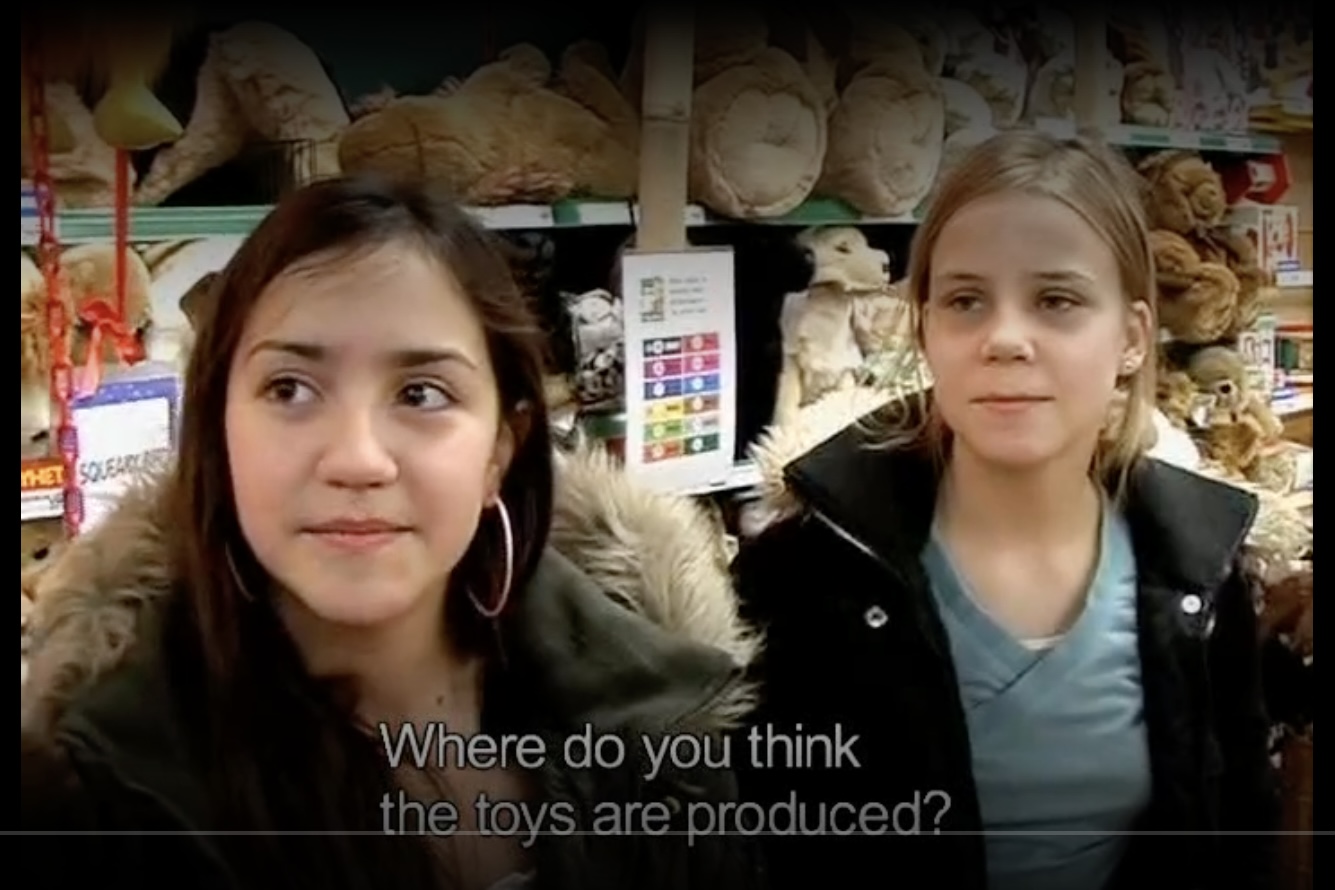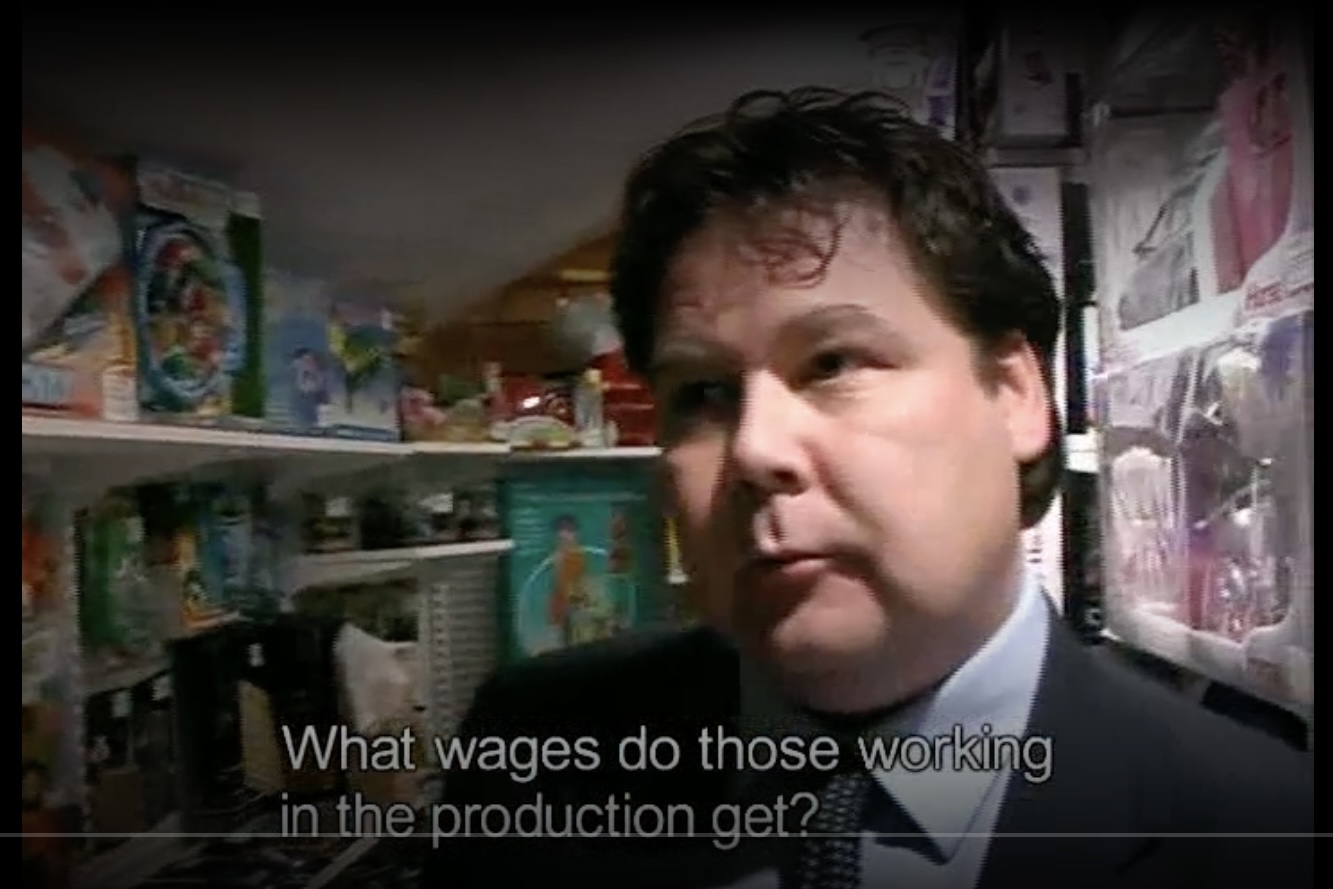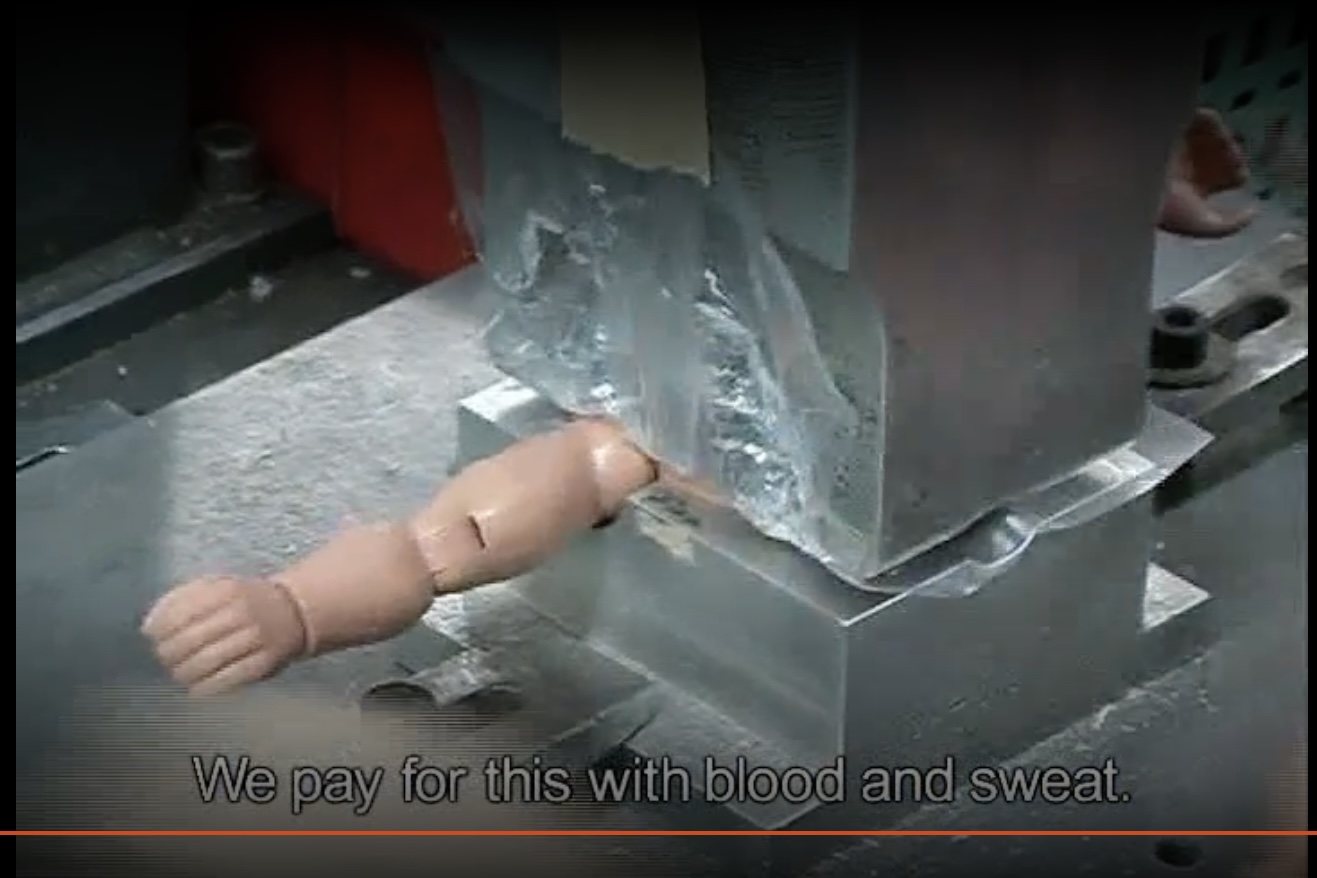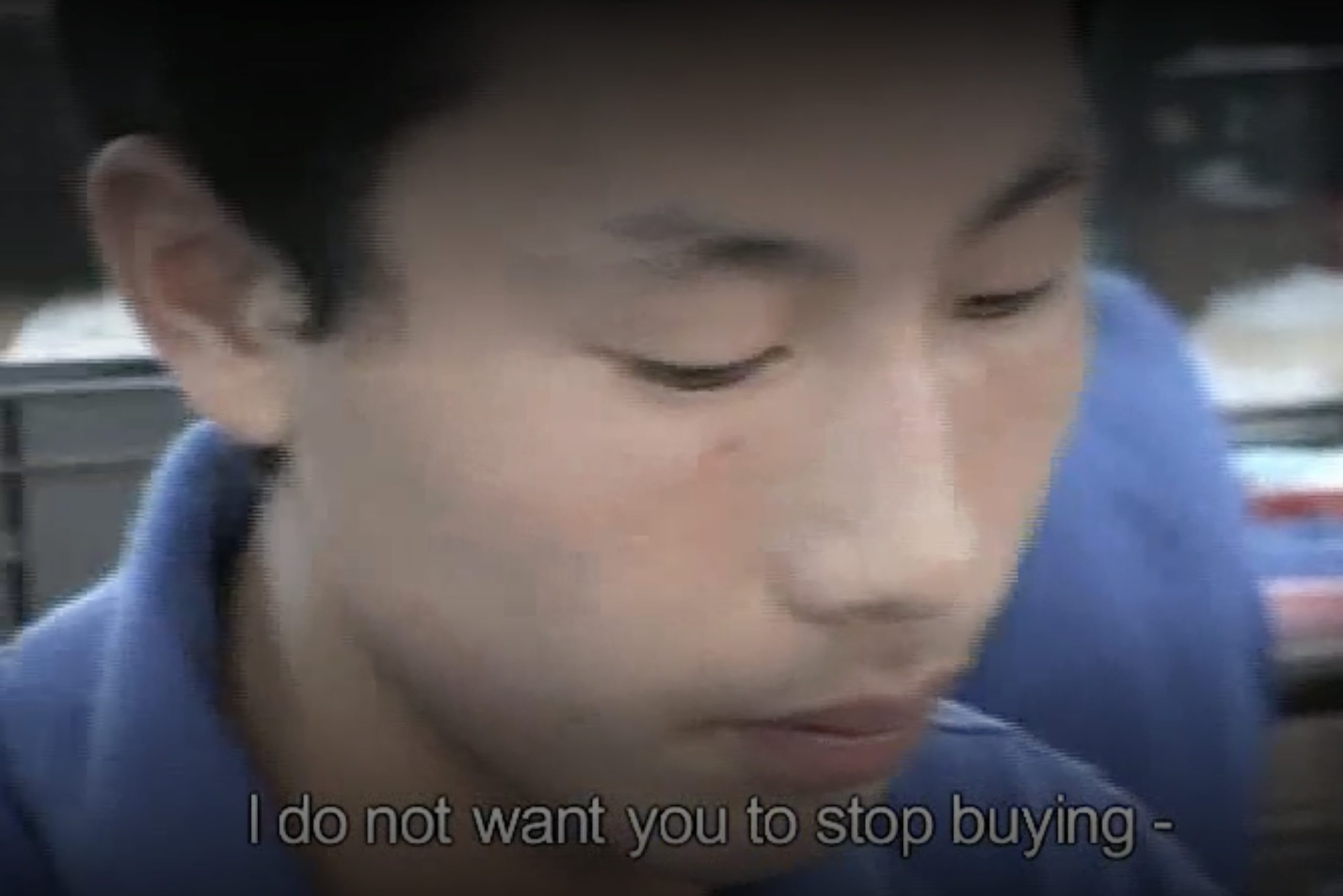
followthethings.com
Grocery
“Mangetout“
A documentary film directed by Mark Phillips for the BBCTV Modern ‘Times’ series.
Screengrab slideshow embedded above. Documentary available on Box of Broadcasts (with institutional login) here.
In this landmark ‘follow the thing’ documentary, director Mark Phillips follows the simple magetout pea (also known as a snowpea) and connects the lives of its producers, retailers and consumers. He films a dinner party in the UK’s home counties where mangetout is a side dish. The guests talk about ‘third world’ lifestyles and exploitation. He films the farm where they are grown in Zimbabwe and introduces us to some of the farm workers and their boss. He visits a UK supermarket and asks shoppers if they buy mangetout. It wasn’t a common vegetable in 1997. And he asks them where Zimbabwe is. Not many seem to know. He films the person who sources Zimbabwe-grown mangetout for the Tesco supermarket chain. And he films this person’s visit to the farm in Zimbabwe where he’s treated like royalty. He’s visiting to monitor the processes that provide the identical size, shape and quality mangetout peas at the price he needs. That’s his job. He wants the farm boss to instruct his workers to improve the quality. The customers – who he says are his boss – will demand this. This is such a fascinating film. It jumps backwards and forwards between these different people talking about mangetout peas and the ways that big business and global capitalism works. From these different perspectives, everyone has an opinion to share. The film’s inclusion of so many perspectives is unprecedented. Everyone seems to speak quite frankly. The power that the Tesco supermarket chain, and the person who sources its mangetout, is enormous. Its visiting buyer talks to the farm manager using a language of partnership, but the farmers say they have to do what they are told. The diners talk about the exploitation of ‘third world’ farmers in casual and abstract ways, and the film cuts to the farm workers talking about the lives they can lead with the money they earn. The people at the top of the ladder are white. The people at the bottom are black. With all of these different stakeholders in it means that, as a viewer, you’re not positioned as a consumer who needs to act by changing your consumption – that’s quite a common trope. You could empathise with any and all of the film’s participants, in different ways. This film was made to educate it audience – carefully, empathetically, through the careful juxtaposition of scenes and voices from a supply chain – about how capitalism works. It’s many juxtapositions give you lots to think about. And, it had a huge impact that on the UK supermarket industry in the 1990s. This was a golden time in trade justice activism. So many campaigns were starting up, and corporations hadn’t yet learned how to respond. Tesco were embarrassed. To borrow a phrase from elsewhere, this film showed ‘capitalism with its clothes off’. They had to do something. They and their rivals didn’t want ‘another Mangetout’. It’s a shame it’s so hard to find now.
Page reference: Ian Cook et al (2025) Mangetout. followthethings.com/mange-tout.shtml (last accessed <insert date here>)
Estimated reading time: 52 minutes.
Continue reading Mangetout ![]()

